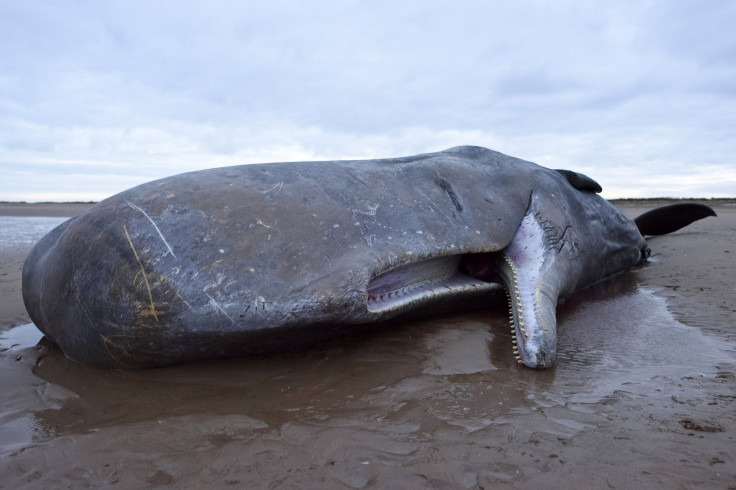Dead Sperm Whale Washes Ashore With Over 60 Pounds Of Garbage In Stomach

Officials in Spain on Wednesday released information regarding a dead whale that in February washed ashore with a stomach full of garbage.
The creature, weighing almost six tons and measuring over 30 feet long, had been discovered near Cabo de Palos in the region of Murcia on Feb. 27.
During a necropsy of the animal by El Valle Wildlife Rescue Center, experts found approximately 64 pounds of garbage in its stomach, including plastic bags, metal cans and pieces of rope and net.
The examination concluded that the whale had perished because it could not release the items it ingested, resulting in a blockage, leading to an abdomen infection called peritonitis.
On the heels of the whale’s death, Spain’s government started a campaign to battle ocean waste and protect the aquatic species.
Consuelo Rosauro, the local government’s general director of natural environment, explained that the issue was global.
"The presence of plastics in seas and oceans is one of the greatest threats to the conservation of wildlife throughout the world," she said in a statement, according to the Telegraph. "Many animals get trapped in the rubbish or ingest great quantities of plastic which end up causing their death. The region of Murcia is no stranger to this problem, which we must tackle through clean-up actions and, above all, citizen awareness."
Considered an endangered species, the sperm whale has the largest brain of any living species on earth. They also have a lifespan of roughly 70 years and are typically found in most of the world’s oceans, except the Arctic, according to the Whale and Dolphin Conservation.
The whale is currently protected under the Spanish Catalogue of Endangered Species and the U.S. Endangered Species Conservation Act.
Meanwhile, ocean waste has become one of the leading global issues. As a result, 79 tons of plastic debris exists in an area in the Pacific Ocean, aptly named The Great Pacific Garbage Patch (GPGP), according to a study published on March 22 in the journal Scientific Reports.
The world’s yearly plastic consumption, which has now increased to over 320 tons, is to blame for the GPGP. A small amount of that material gets recycled while most of it gets discarded into the ocean, according to the report.
© Copyright IBTimes 2024. All rights reserved.





















